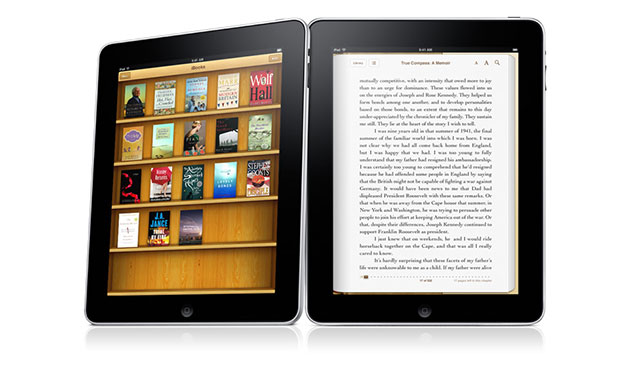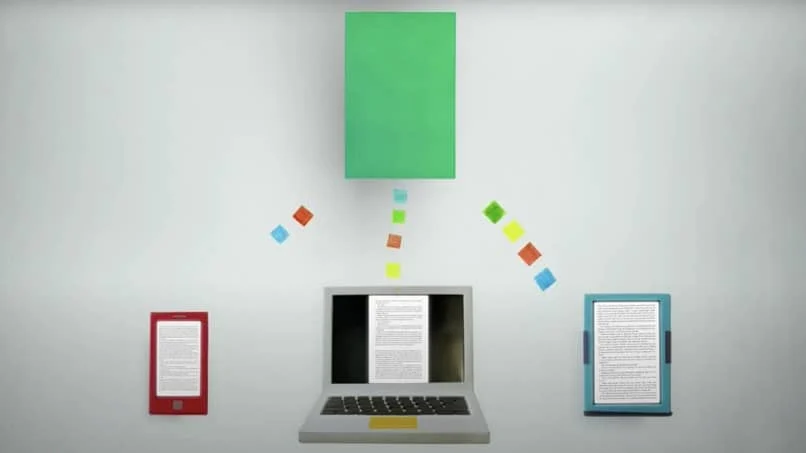While the ebook market sometimes seems like the least sexy segment of the digital world, it’s still a huge deal.
After all, last time I checked, books were still a pretty big deal, whether in terms of how many people read or how many people many money off that fact.
So while the arrival of Google’s new electronic bookstore may seem a little blah, it’s actually pretty important.
Because, although it’s true a group of high school students could have arrived at a better name than the Google eBookstore, Google’s new cloud-based approach is not just their challenge to Amazon and Apple – it’s also part of a broad trend of how reading and books will change.
Here’s how Google just did their part to revolutionize our relationship to this thing called “the book”.
Google Want to Break the Retailer/Device Combo
The main thrust of the new bookstore is a “buy anywhere, read anywhere” philosophy. Books can be purchased through the website, and read on the web, on iOS or Android devices, or on ePub compatible readers.
This isn’t radically new. Kindle, Kobo and soon even Sony will allow you to read books on devices or on mobile apps (and on Kindle, in a web browser).
But because Google is the first major player to push a service over devices, there is something else simmering here: they are trying to break down the link that has been created between content sellers who also make devices.
This is Google’s next major anti-Apple move: sell content in the most open format it possibly can and then make it work on all devices, including competitor OS’s.
But more to the point, it’s about having your media library in the cloud, accessible through the web browser. And isn’t that infinitely better than needing to buy an iPad to use iBooks or being locked into Kindle’s closed market?
In the Future, One Open Standard
So what does this mean for formats?
Right now, the books available in the eBookstore use Adobe’s DRM system. While it’s not ideal, it was really the only option available for Google. Publishers simply wouldn’t have gone with a DRM-free system, and a proprietary, new one would have closed out existing devices.
But even in this less-than-perfect world – DRM does, after all, have serious drawbacks and tends to punish legal users more than illicit ones – it’s a step in the right direction.
As Google’s James Crawford points out, ““We think ultimately e-books should be like physical books; most people don’t have bookshelves sorted by which retailer they bought it from.”
So this is a step towards ebooks working the way they should. To wit, “buy once, read anywhere”.
This is the way it should be. DVD’s, after all, also have DRM; you just rarely ever noticed it (or at least you didn’t until you tried to rip one). Books should be the same way.
The Arrival of a New Type of Media?
But there’s another change at work here. When media moves into the cloud, it also disconnects it from physical constraints.
But those physical constraints are part and parcel of what made that media in the first place. The idea of a novel as mainly formed of words; the average length of film; the concept of ‘the album; all of these things are in part about the actual physical, material limitations of the stuff media was made with.
But when media moves into the cloud, it no longer has to be constrained by those things. And instead of ‘a piece of media’ being this singular, enclosed thing experienced by individuals, it could be something quite else.
As Bob Stein of the Institute for the Future of the Book says, the move to digital is also the move to the social. According to Stein, the days of a person experience media alone in a one-way flow of information is ending.
So the cloud book, rather than simply being a digital replica of a print book, could be a new thing entirely: a social experience in which, rather than book clubs, books are annotated in margins by a number of people. A book in the cloud is potentially always a shared experience, and could offer a remarkably different perspective than the standard print book.
And by being the first to really push the book into the cloud, Google may have started a revolution in which the very idea of the book starts to change.
What do you think of Google’s eBookstore? Do you plan to use it? Sound off in our comments section.



Hey I’m really impressed with the innovative thinking behind this concept. It takes the ebook to whole new level. I can’t wait to find one under my tree. Hint hint